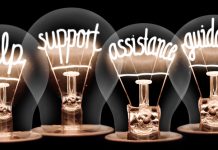With just a few months to go until the start of the COP26 summit in Glasgow, Scotland, speculation is rising about what the major talking points and outcomes will be, how America’s re-joining of the Paris Agreement may influence the debate, and which countries will be taking the lead on introducing new measures in the race to achieve Net Zero by 2050.
In July this year the European Commission adopted a package of proposals to enable the necessary acceleration of greenhouse gas emission reductions in the next decade, including application of emissions trading to new sectors, increased use of renewable energy and an alignment of taxation policies with the European Green Deal objectives. It’s likely that more such proposals will be made as part of the summit, from both Europe and beyond.
Business leaders looking ahead to COP26 may be concerned about what the implications could be for them because of new targets being set, agreements being made, and legislation being tabled following the summit. For those without the dedicated time and resources needed to fully immerse themselves in the debates taking place during the twelve days of COP26, it can be hard to know where to focus energy and how to keep abreast of events. That’s why it’s critical for business leaders to get ahead of the curve now and begin thinking about and preparing for the changes that may be headed their way.
Below I have outlined five ways that business leaders can get a head start on planning for the anticipated outcomes of COP26 to help mitigate against any potential challenges to their business, and even use the summit as a positive opportunity to engage investors, stakeholders and employees with their current and planned environmental practices and policies to help build trust and confidence.
1. Conduct a thorough review of your current ESG strategy and reporting
No matter what the size or sector of a company, it has become clear in recent years that a sustainability strategy and a comprehensive ESG reporting programme is no longer a ‘nice to have’, it is an essential tool in not only complying with industry, investor and consumer expectations, but also in giving a competitive advantage to those who can demonstrate tangible positive impacts for people or planet.
COP26 provides an ideal opportunity for business leaders to review their current policies, practices and reporting procedures and ask themselves some tough questions about whether they are still fit for purpose given the rapidly changing landscape we are operating in, and whether they are missing out on opportunities to be bolder and more ambitious with their approach to sustainability.
An increased focus on the problem of ‘greenwashing’ by businesses over the past year or so is likely to be raised as an issue at the summit, leading to greater scrutiny and vigilance on businesses around their environmental targets and performance, and there will almost certainly be a push for more standardisation in ESG reporting with new frameworks being introduced.
Being on top of your current ESG reporting practices and seeking advice from independent sustainability experts on the wide range of ESG reporting frameworks available, and which may be best suited to your business, is a critical first step in preparing for changes to come.
2. Anticipate potential changes to legislation and regulations within your markets
Since the first COP summit took place in 1995 there have been over 2,000 environmental laws passed globally and increasing awareness of the climate crisis and pressure from voters on politicians to take action is sure to lead to new targets being set by governments attending COP26 and new legislation being introduced to support this.
New environmental legislations will have implications for businesses not only in the country of application, but across trade borders, for example, the EU is proposing a carbon border tax to mitigate unintended consequences of its emissions trading system and prevent ‘carbon leakage’. If passed, this will have consequences for any businesses importing goods to the EU with carbon intensity exceeding EU emissions standards.
The summit will also be another big acceleration point for ESG announcements in relation to the world of finance and investment, for example the International Financial Reporting Standards Foundation is on track to launch a global Sustainability Standards Board with the backing of the International Organization of Securities Commissions (IOSCO), the umbrella group for global markets watchdogs. COP26 is expected to turbo charge the green finance market with more investment and capital flowing to companies able to demonstrate green credentials, so business should watch out for any green financing arrangements or incentives to come out of the summit, as well as any specific to their area of business e.g. clear air or habitat protection.
3. Take advantage of opportunities to innovate and adapt your business
The global pandemic has demonstrated to the business community the importance of being able to adapt swiftly to new circumstances and innovate to meet the changing needs of customers. The climate crisis is already starting to present similar challenges to businesses, as growing consumer awareness of the role their purchasing habits can play in addressing climate change shifts behaviours.
The global media interest in COP26 will help to accelerate this consumer move to seek out more sustainable products and services, presenting an opportunity for businesses to capitalise on this interest and look to grow into new markets, create new products and services or even adapt their business models. The summit will provide early insights and previews into relevant innovations that could impact on businesses, showcasing the latest, most cutting-edge advances in green and clean technology.
While significant innovations in products or services may not be possible, or desirable for many businesses, there are smaller ways that businesses can demonstrate their commitment to a more sustainable way of operating, from introducing carbon labelling on products to altering supply chain policies, which can help create differentiation in the market.
4. Prioritise sustainability as a core part of your business
For businesses that don’t already have sustainability as a core agenda for their c-suite, now is the time to address this, as the build up to COP26 and beyond will only increase the pressure on business leaders to respond to growing demands from customers and stakeholders to be part of the solution in the fight against climate change.
Along with having the right policies, practices and reporting structures in place, an important part of a businesses’ sustainability strategy should be ensuring there is sufficient resourcing to deliver it effectively and that there is sustainability expertise at board level and ideally across all areas of the business.
Smaller businesses may need to bring in outsourced counsel if it’s not possible to resource in-house, but should avoid treating sustainability in a silo, as failure to ensure a joined up, company-wide approach to sustainability and sustainability reporting can compromise the objectives of your strategy and dilute its effectiveness.
5. Communicate your sustainability efforts with priority audiences
Whether you have a fully developed and comprehensive business sustainability strategy in place or are just starting out on your journey towards a more sustainable way of operating, it’s important that you are communicating this journey effectively with all priority stakeholders along the chain, from staff to customers, suppliers and investors, and COP26 is the ideal opportunity to do this.
We’ve seen over the past 18 months with the COVID 19 pandemic, that the power of data lies not just in facts and figures but in the way they are presented and therefore, what story is told through them to the world. Therefore, all businesses should have a strong plan in place for clearly communicating their sustainability targets, results and a roadmap for change – honesty and accountability are key.
Actively engaging with COP26 shows that your business wants to be part of the solution and that you recognise the impact of climate change, which will be important for stakeholder and staff relationships. Thinking about how the outcomes of the summit may affect your customers and suppliers will also allow you to proactively offer them support and guidance, or to collaborate for change.
European businesses have a chance to lead the way
Climate change has been described as both the biggest business risk and the biggest business opportunity in recent times, and the COP26 summit this November will shine a spotlight on these potential risks and opportunities, creating new momentum for change within the business community.
With Europe setting out its intention to become the world’s first climate-neutral continent by 2050, European business leaders will have an added incentive to get ahead of the curve in anticipating and adapting to meet evolving regulations, legislation and customer demands, helping to ensure the future resilience of both their business and the planet.
About the Author

Dr Assheton Stewart Carter, Ph.D, Dr. Carter is senior advisor to C-Suites on sustainability, compliance, standards and mineral supply chains. He is a pioneering consultant on responsible sourcing, corporate sustainability, non-financial risk, and responsible investment in international and emerging markets. He has been at the forefront of the corporate sustainability movement for more than 25 years with a focus on mining, energy, jewellery and luxury, auto and electronics industries.
He is CEO of TDi Sustainability, an advisory firm to Fortune 100 companies in the UK, Europe and the USA, and to natural resource companies in Africa, Asia and Latin America. TDi’s clients include L’Oréal, Google, Microsoft, Tiffany, Cartier, and Chopard. He is the founder and board chair of the Impact Facility for Sustainable Mineral Supply Chains, an impact investment vehicle with a mission to empower rural communities through the building of viable responsible small and medium sized enterprises in Africa and Central and South America.
Carter is also the Executive Director of the Fair Cobalt Alliance, a multi-stakeholder initiative driven to build responsible supply chains for the energy transition, and Chair of the Advisory Board of Equitable Origin, a certification body dedicated to raising standards and recognising clean and responsible energy projects and companies. A passionate entrepreneur, he is the co-founder of the ethical jewellery company, Makal, that is built on fully traceable precious metals and gemstones from around the world.
Assheton has launched and led a number of ground-breaking initiatives with international corporations, and structured numerous innovative sustainable supply chains, including the first fully traceable gold and diamond jewellery for the world’s largest retailer, Wal-Mart and developed the only tracking system for “conflict-free” metals from the DRC used by electronics manufacturers in Europe and the United States, and the Fair Cobalt Alliance.
Having spent 12 years in the USA and travelling in over 60 countries, he is now based in the UK.
He has published over 25 book chapters and articles and holds a Ph. D from the Business School of the University of Bath in management and sustainability.



































